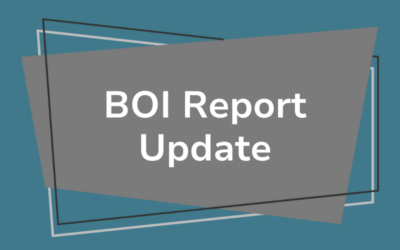What Is a fictitious name? A fictitious name is a name other than your proper legal business entity name that you formally get permission from the state (or county) to use when conducting business. You may also see a fictitious business name referred to as:
- Doing Business As (DBA)
- Assumed name
- Trade name
Throughout this post, I will use the terms “fictitious name” and “DBA” interchangeably. At CorpNet, we help business owners throughout the United States file DBAs. Fictitious names can benefit businesses of all types—from sole proprietorships to LLCs to corporations.
At CorpNet, we help business owners throughout the United States file DBAs. Fictitious names can benefit businesses of all types—from sole proprietorships to LLCs to corporations.
To help you explore if filing a fictitious name may be the right move for your business, I’m going to share more about the purposes they serve and what you need to do to obtain one.
The Purpose of a Fictitious Name
States require filing fictitious business names because they help inform the public about who actually owns the company. A fictitious name filing puts a business’s name and its owner’s identity on public record. Using a reference from one of my family’s favorite movies, “The Wizard of Oz,” a fictitious name lets people know who is “the man (or woman) behind the curtain.” It helps protect consumers from being hoodwinked into unknowingly doing business with a person or business entity that has a shady reputation.
If you’re a sole proprietor or general partnership, a fictitious name will give you the ability to market your company under a more creative and compelling name than you would otherwise be legally allowed to use. In most states, you don’t need a fictitious name if you use your full personal name along with a descriptive term to indicate the type of business you’re operating.
For example, if I start a coffee shop as a sole proprietorship, I would need to operate it under a name like “Nellie Akalp Coffee Company.” Not very catchy, right? But with a fictitious name approved by the state, I could use a more clever name—such as “Café Harmony”—to represent my business. Note that if I would opt to only use my first name in the name of my business—“Nellie’s Coffee Company”—I would need to file for a fictitious name. If both your first and your last name aren’t included in your business name, you need to file for a DBA.
Under certain circumstances, an LLC or C Corporation may need or want fictitious names, too. For example, if you want to operate and market your company under a different name than the one you registered your LLC or corporation with you would need a DBA.
For instance, if I registered my business as an LLC under the name “The Akalp Group, LLC,” I would need to file for a fictitious name for “Café Harmony” if I’d want to conduct my coffee shop under that name.
Fictitious names also enable an LLC or corporation to operate multiple businesses without having to create separate legal entities for each one. For instance, if you plan to open several different restaurants, retail stores, or e-commerce websites, you might want to set up one corporation with a generic name and then file a DBA for each eatery, shop, or website.
Benefits of a Fictitious Name
What are the benefits of filing a DBA? For starters, it keeps you in compliance with the law. Neglecting to file a business name as a fictitious name when required to by law may subject you to fines, deny you the right to enforce contracts, and even result in the shutdown of your business.
Other advantages of a fictitious name include:
- It enables a sole proprietorship or partnership to avoid the complexity and expense of formally creating a business entity to use a desired business name. It gives you the ability to establish a professional business brand under a name that will click with customers without going the formality of forming an LLC or incorporating your business.
- It enables a sole proprietor or partners in a partnership to open a business bank account for receiving and making payments through their company. Many banks will request you present a copy of your filed DBA before they process your request to open an account in your business name.
- It will help you control costs and minimize the amount of paperwork and compliance tasks associated with expanding your LLC or corporation.
Before You Register Your Fictitious Name
Put some serious thought into the name. Why go through the process of filing a fictitious name only to discover the name isn’t truly what you want or what will best represent your brand.
Some tips for arriving at a name that will help build a strong brand reputation include:
- Consider the impression you want your fictitious business name to make. Do you want your company’s name to project a vibe that is cool and edgy, traditional, academic, professional, friendly, or some other characteristic? Choosing the right name can help you attract your target customers.
- Keep it simple. A business name customers won’t struggle to pronounce, spell, and remember will gain traction more effectively in the market (and be found more easily in online searches) than one that’s complicated.
- Steer clear of language and cultural taboos. Realize that trying to be too witty or edgy with your name could backfire. Not everyone has the same threshold of tolerance for controversial references or the same sense of humor. Before locking in a name, ask for feedback from friends, family, and members of your target market. This can help you avoid driving away customers.
After you’ve decided on the name you want to use, do a search on the name to make sure no other business in your jurisdiction has already claimed it. Your request to register your DBA will likely be denied if another similar type of business is already using the name.
Also, realize that although a DBA might discourage other businesses from using your name, it won’t offer the same name protection as forming an LLC or incorporating. For that reason, I also suggest you use a trademark search tool to see if your preferred name is available throughout all the states. If it is, you might consider also filing for trademark protection of your name to better guarantee competitors won’t be able to hijack it.
Filing For a Fictitious Name
Your bank about opening accounts in that name, you should file your DBA. Some states and counties provide some leeway, allowing you to file within a certain period of time after you first use the business name. It’s best to get it done as soon as possible, though, to avoid the possibility of missing the deadline.
To file for a fictitious business name, you must complete some paperwork (usually a simple one-page form) and pay the applicable filing fee. In some states, you must apply for DBAs through a state agency, usually the Secretary of State office. In other states, you need to file for fictitious names through the county in which your business is located. Forms and fees vary from state to state and county to county. As I mentioned earlier, you may also have to publish a notice in your local newspaper and then provide proof to the state or county that you have done so.
The length of time before a DBA expires differs, too. In Texas, for example, a fictitious name will be good for ten years before you need to renew it. In California, you have to renew your DBA in five years to continue using it. And in New York, your fictitious name will be valid as long as you operate your business. Where renewal is required, as long as you renew on time, your fictitious name can last as long as your business does. Failure to renew by the deadline, however, opens the risk of losing your claim to your name.
Your Business Name Is Important!
Don’t underestimate the importance of securing your fictitious business name. You really need to understand what a fictitious name is and how it could help your business.
Your business name will be the foundation upon which to build your brand, so it’s something to be handled with careful attention.
Fortunately, you don’t have to handle the details alone. CorpNet has experience in filing DBAs for businesses in all 50 states, and we’re here to help you apply correctly and cover all the bases. Contact us today to take care of all the aspects involved in filing your fictitious name.
Do You Need a Fictitious Name?
By asking CorpNet to help you with your DBA filing, you can rest assured the process will be handled correctly and quickly. We will assist you in identifying whether your desired name is available, preparing and filing the DBA form, and more.





